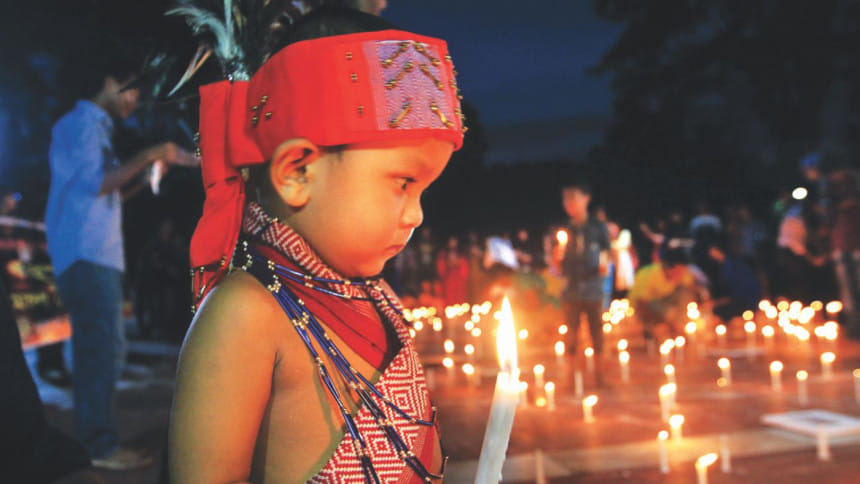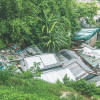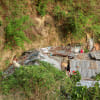Justice remains a far cry in the hills

On July 28, fourth-grader Kirtika Tripura Chakma left her school premises to have a quick lunch at her home nearby. When her classes began after the midday break, she had not returned.
Her sudden disappearance led to a frantic search that lasted for hours. Finally, her body was found in a nearby forest around midnight.
She was allegedly raped before being murdered in Khagrachhari's Dighinala.
The incident also compelled Adivasi students and rights activists to pour into the Khagrachhari city streets demanding justice for Kirtika. The local administration officials then looked into the matter and promptly arrested three suspected Bangalee settlers.
The family of the nine-year-old received Tk 50,000 in compensation.
However, the first information report filed by the family doesn't mention any names, Shefalika Tripura, a woman rights activists, said, adding that she feared this could be taken advantage of by the perpetrators to get away with the crime.
The fear is not unfounded. No one has yet been punished in the CHT for rape, gang-rape or murder of Adivasis under the women and children repression prevention act 2000.
Thus far, 15 indigenous girls and women have been raped this year until July 7 in the Chittagong Hill Tracts, of whom four were killed afterwards.
Two others were gang-raped, two kidnapped, two killed and six sexually harassed.
Besides that, nine attempted rape incidents were reported, according to Kapaeeng Foundation, a rights organisation working for indigenous people in the country.
“In the CHT, whatever happens, it is portrayed as a communal thing,” said Yan Yan, the queen of the Chakma circle.
Contradicting that belief, she claimed that Bengali settlers were accused in 95 percent of the rape cases.
Following such incidents, the settlers' community issue threats to the victim's family, forcing them to remain silent or risk retaliation against the whole Adivasi community, Yan said.
“They would not get justice anyway. If the victim is alive, she and her family will want to get along with their usual life without further harassment and if the victim is dead, her family has nothing to fight for,” she said.
When a woman or girl is abducted, her family doesn't even go to the police because of the same fear of retaliation, Yan Yan said.
“They themselves look for the girl and wait for the missing to be returned.”
The root cause of this situation is manifold.
The new generations of those Bangalees rehabilitated in the CHT some 40 years back under state patronisation don't want to be identified as settlers anymore, Yan Yan said. They want a share of jhum land and resources and so they want to force Adivasis out.
An international indigenous rights organisation, Cultural Survival, gave a similar view on the state of indigenous human rights in Bangladesh.
“Physical and sexual violence against indigenous women is used as a tool of fear and coercion to facilitate eviction and land-grabbing,” it said in a report submitted in October last year for the 30th session of the UN Human Rights Council Universal Periodic review.
When cases are filed, the progress trials is very slow, said advocate Jewel Dewan, coordinator of Bangladesh Legal Aid and Services Trust, Rangamati unit.
For instance, Sujata Chakma, was raped and murdered in Longadu six years back. The accused Md Ibrahim, who had converted to Islam, made a confessional statement that he had hacked the 11-year girl to death out of anger.
The man was earlier accused of raping Sujata's 13-year-old cousin and was in jail for months. After getting bail, he met Sujata one day and she hurled insults at him. Ibrahim then killed her.
Both Sujata and her cousin's cases are still under trial.
Vital witnesses like the investigation officer and the medical officer are yet to testify in connection with Sujata's case.
“None of Khagrachhari, Bandarban and Rangamati [three hill districts] has separate judges to handle women and children repression cases. If we get separate judges, the cases will be disposed of fast,” Jewel said.
NGO activist Tuku Talukdar said even when they offer assistance, victims refuse to file cases as there has been no example of getting justice.
The element of violence is also not only restricted to settlers.
For instance, two Marma girls -- one allegedly raped and another sexually assaulted in January this year -- wanted to stay under the custody of Chakma Circle Chief Raja Debashish Roy but police said they handed the girls over to their parents as per a court order.
They received treatment at Rangamati Sadar Hospital for nearly three weeks and on the day of release, when volunteers and Chakma queen Yan Yan were visiting them, they were all attacked, allegedly by security personnel in plainclothes.
The girls were taken away and since then no one knows where they or their family are.
When The Daily Star contacted a number of lawyers and NGO activists, they refused to talk much about the battle of the Adivasis for justice.
Fear may have been a factor in their silence.
The Human Rights Council Working Group on the Universal Periodic Review said in a report submitted in March that human rights activists had been abducted by security personnel in the Chittagong Hill Tracts and “subjected to harassment, arbitrary arrests and detention.”

 For all latest news, follow The Daily Star's Google News channel.
For all latest news, follow The Daily Star's Google News channel. 








Comments